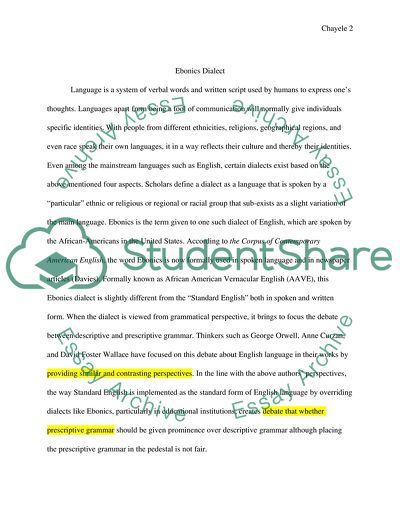Cite this document
(Ebonics Dialect of English Language Coursework Example | Topics and Well Written Essays - 1500 words, n.d.)
Ebonics Dialect of English Language Coursework Example | Topics and Well Written Essays - 1500 words. https://studentshare.org/humanitarian/1864974-ebonics-dialect
Ebonics Dialect of English Language Coursework Example | Topics and Well Written Essays - 1500 words. https://studentshare.org/humanitarian/1864974-ebonics-dialect
(Ebonics Dialect of English Language Coursework Example | Topics and Well Written Essays - 1500 Words)
Ebonics Dialect of English Language Coursework Example | Topics and Well Written Essays - 1500 Words. https://studentshare.org/humanitarian/1864974-ebonics-dialect.
Ebonics Dialect of English Language Coursework Example | Topics and Well Written Essays - 1500 Words. https://studentshare.org/humanitarian/1864974-ebonics-dialect.
“Ebonics Dialect of English Language Coursework Example | Topics and Well Written Essays - 1500 Words”. https://studentshare.org/humanitarian/1864974-ebonics-dialect.


